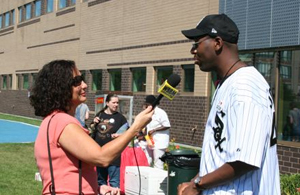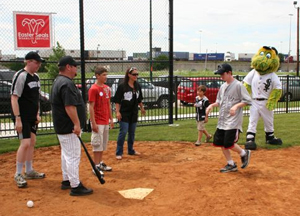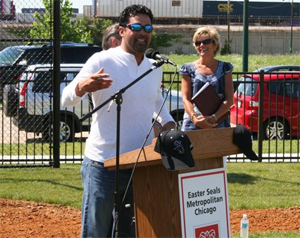McCain and Obama on autism
by Patricia Wright
It seems ages ago that I posted a blog about the Democratic primaries and Hillary Clinton and Barack Obama’s ties to Illinois, the state where I live. Now the Democratic and Republican conventions are finally starting, and suddenly, after a seemingly endless primary season, the presidential election is right around the corner.
To help with your decision, the Autism Society of America (ASA) invited the presidential candidates to submit statements about their views on autism. Both major candidates responded, and ASA posted those statements on their Web site.
An excerpt from John McCain’s response emphasizes the economic and emotional cost of autism:
More than one in 150 children born today will be diagnosed with autism. It now affects almost 1.5 million Americans, and costs the U.S. $90 billion each year. Autism has a significant impact on families — bankruptcy and divorce rates of parents of children with autism are well above the national averages. Worse, there is no quantifiable way of determining how many future doctors, lawyers, teachers, or scientists autism has taken from society. Autism is a national crisis and the federal government must respond accordingly.
Barack Obama’s statement focuses on ending disability discrimination. After a paragraph discussing research and education, Obama wrote:
I also support the adoption of a comprehensive plan designed to provide lifelong supports and resources to Americans with ASD and other disabilities. This plan would ensure that their needs are met by:
- Reclaiming America’s global leadership on disability issues by becoming a signatory to — and having the Senate ratify — the UN Convention on the Rights of Persons with Disabilities;
- Providing Americans with disabilities with the educational opportunities they need to succeed;
- Ending discrimination and promoting equal opportunity; and
- Increasing the employment rate of workers with disabilities, and
Supporting independent, community-based living for Americans with disabilities.
Issues shape and define campaigns, and it’s heartening that the needs of people with autism and their families have taken a place on the candidates’ agendas, along with foreign policy, our economy and global warming. Whatever the election’s outcome, all of us in the autism community look forward to working to keep autism on the presidential radar after next year’s inauguration.









